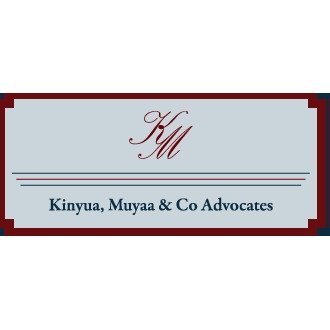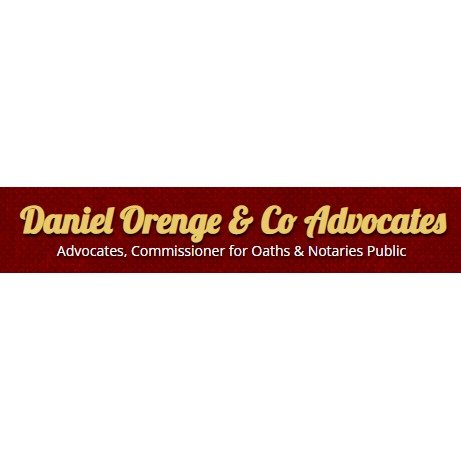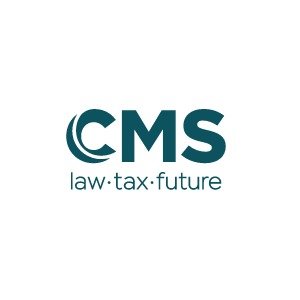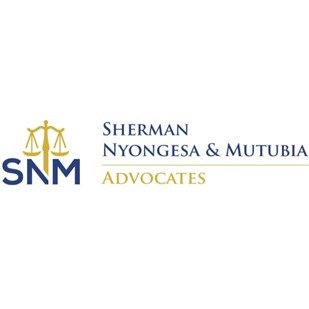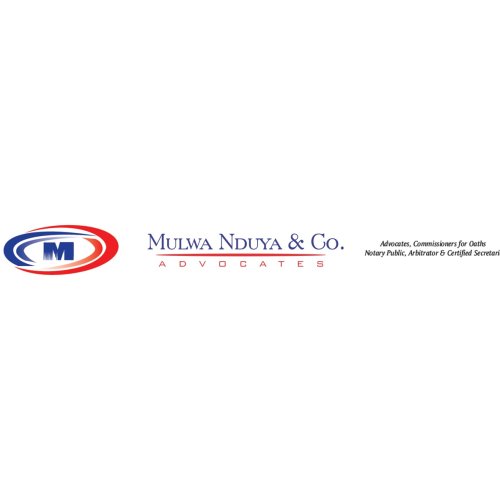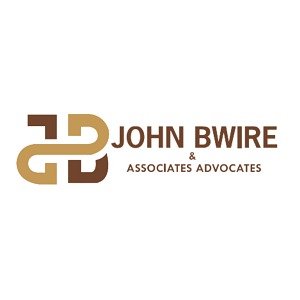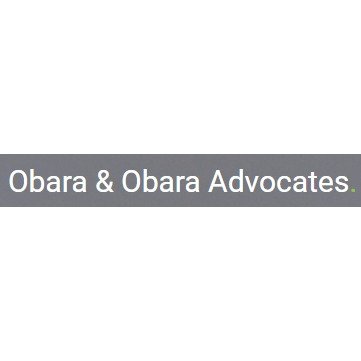Best Restructuring & Insolvency Lawyers in Mombasa
Share your needs with us, get contacted by law firms.
Free. Takes 2 min.
List of the best lawyers in Mombasa, Kenya
Legal guides written by Adroit Law LLP:
- Kenya Launches Digital Nomad Visa: A Gateway for Remote Workers
- Navigating the Payment System License Maze in Kenya
- Navigating the Complexities of Mining Licenses and Permits in Kenya: A Look into Artisanal and Large-Scale Operations
About Restructuring & Insolvency Law in Mombasa, Kenya
Restructuring and insolvency law in Mombasa, Kenya addresses the processes and legal mechanisms designed to help businesses or individuals manage financial difficulties. When debts become unmanageable and a company or individual is at risk of being unable to meet their financial obligations, restructuring and insolvency law provides structured procedures to either rescue the business, reorganize assets, or, if necessary, distribute remaining assets among creditors in an orderly way. In Mombasa, as a major commercial hub and seaport, these laws play a crucial role in maintaining financial stability and supporting economic activity.
Why You May Need a Lawyer
Engaging a lawyer for restructuring and insolvency matters is important because these cases often involve complex legal and financial issues. Here are some common scenarios where legal expertise is essential:
- Negotiating with creditors to restructure loan agreements or payment plans
- Filing for bankruptcy or insolvency proceedings for companies or individuals
- Managing staff layoffs, asset sales, or business closures due to insolvency
- Protecting your rights as a creditor in an insolvency case
- Handling cross-border insolvency issues, especially relevant in coastal trading cities like Mombasa
- Advising on compliance with Kenyan insolvency laws to avoid liability
Having a knowledgeable lawyer helps ensure that you navigate these situations in compliance with local laws, protect your assets, and avoid costly mistakes.
Local Laws Overview
Restructuring and insolvency matters in Mombasa, Kenya are primarily governed by the Insolvency Act, 2015. This statute establishes the procedures for individuals and companies facing financial distress. Here are key aspects relevant to Mombasa:
- Insolvency Procedures: The Act covers voluntary and involuntary liquidation, administration, and bankruptcy proceedings. Companies can enter administration to attempt rescue or reorganization, while creditors or the company itself may petition for liquidation.
- Company Voluntary Arrangements (CVA): Businesses may propose formal agreements with creditors to pay off debts over time, which require the approval of a majority of creditors.
- Personal Bankruptcy: Individuals who cannot pay their debts may be declared bankrupt, with their property managed for the benefit of creditors.
- Cross-Border Insolvency: International aspects are addressed, acknowledging the needs of companies with assets or debts in multiple jurisdictions.
- Protections and Restrictions: The law provides for protection against asset seizure in certain situations and limitations on transactions made before insolvency to prevent fraud.
- Creditor Hierarchy: In all proceedings, certain debts are prioritized, such as employee claims and secured creditors.
Local courts in Mombasa oversee the application of these laws. Additionally, official receivers and insolvency practitioners, who are often legal professionals, play vital roles in these processes.
Frequently Asked Questions
What is insolvency?
Insolvency is when a person or company cannot pay their debts when they are due, or their liabilities exceed their assets. It can lead to legal processes to manage debts or liquidate assets.
What is restructuring?
Restructuring refers to reorganizing a company’s financial affairs or operations to help it return to profitability or manage debts. This may involve renegotiating terms with creditors, asset sales, or operational changes.
Does filing for insolvency mean a company will automatically close?
No, insolvency does not always mean closure. There are procedures, such as administration or company voluntary arrangements, aimed at business recovery.
Can individuals declare bankruptcy in Kenya?
Yes, individuals can be declared bankrupt under the Insolvency Act, 2015, which allows for the management and distribution of their assets to creditors.
What happens to employees during insolvency?
Employees may have their contracts terminated or varied. Kenyan law prioritizes employee claims for unpaid wages during asset distribution but cannot always guarantee full payment.
How are secured and unsecured creditors treated?
Secured creditors (those with collateral) are paid first from proceeds of sold assets tied to their loans. Unsecured creditors are paid from any remaining assets, in the order set by law.
What is the role of an insolvency practitioner?
An insolvency practitioner is a licensed professional, often a lawyer or accountant, appointed to manage insolvency proceedings, including administration, liquidation, or bankruptcy.
Are there alternatives to declaring insolvency?
Yes, a lawyer may help negotiate informal arrangements with creditors, propose a company voluntary arrangement, or explore restructuring options before initiating formal insolvency proceedings.
What legal risks exist for directors of insolvent companies?
Company directors have duties under law. If they allow the company to incur more debt knowing insolvency is likely, or engage in fraud, they may be held personally liable or banned from future directorships.
How long does the insolvency process take?
The length varies depending on the complexity of the case, number of creditors, size of assets, and whether disputes arise. Cases can range from a few months to several years.
Additional Resources
If you are seeking more information or need practical support, consider these resources:
- The Office of the Official Receiver (based in Mombasa for regional matters)
- The Kenyan Judiciary - Commercial and Admiralty Division of the High Court, Mombasa
- Law Society of Kenya - Coast Branch, which can help connect you with accredited lawyers
- Insolvency Practitioners Association of Kenya for professional advice and contacts
- Kenya Association of Manufacturers - for business support in financial distress
Next Steps
If you or your business are facing financial difficulties in Mombasa, Kenya, consider the following steps:
- Gather all relevant financial documents, including statements, loan agreements, and asset lists
- Assess your options - consider whether you might benefit more from restructuring or formal insolvency proceedings
- Contact a qualified restructuring and insolvency lawyer familiar with Mombasa's local context
- Discuss your situation openly and provide all necessary information to receive accurate advice
- Work closely with your lawyer or an insolvency practitioner to navigate the process and protect your legal interests
Early advice can make a significant difference in preserving assets, minimizing loss, and possibly rescuing your business. Do not hesitate to reach out to professionals for guidance tailored to your specific situation.
Lawzana helps you find the best lawyers and law firms in Mombasa through a curated and pre-screened list of qualified legal professionals. Our platform offers rankings and detailed profiles of attorneys and law firms, allowing you to compare based on practice areas, including Restructuring & Insolvency, experience, and client feedback.
Each profile includes a description of the firm's areas of practice, client reviews, team members and partners, year of establishment, spoken languages, office locations, contact information, social media presence, and any published articles or resources. Most firms on our platform speak English and are experienced in both local and international legal matters.
Get a quote from top-rated law firms in Mombasa, Kenya — quickly, securely, and without unnecessary hassle.
Disclaimer:
The information provided on this page is for general informational purposes only and does not constitute legal advice. While we strive to ensure the accuracy and relevance of the content, legal information may change over time, and interpretations of the law can vary. You should always consult with a qualified legal professional for advice specific to your situation.
We disclaim all liability for actions taken or not taken based on the content of this page. If you believe any information is incorrect or outdated, please contact us, and we will review and update it where appropriate.





